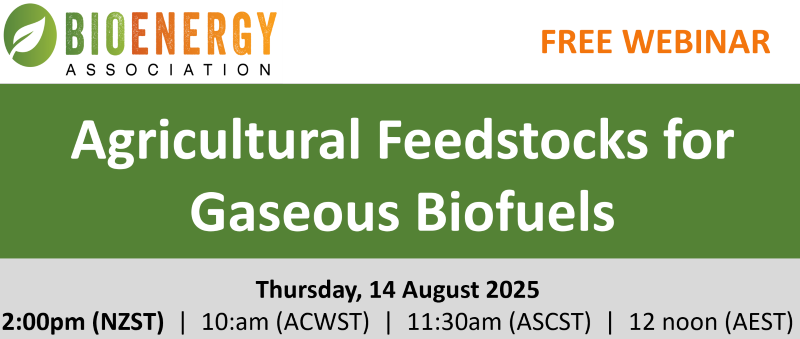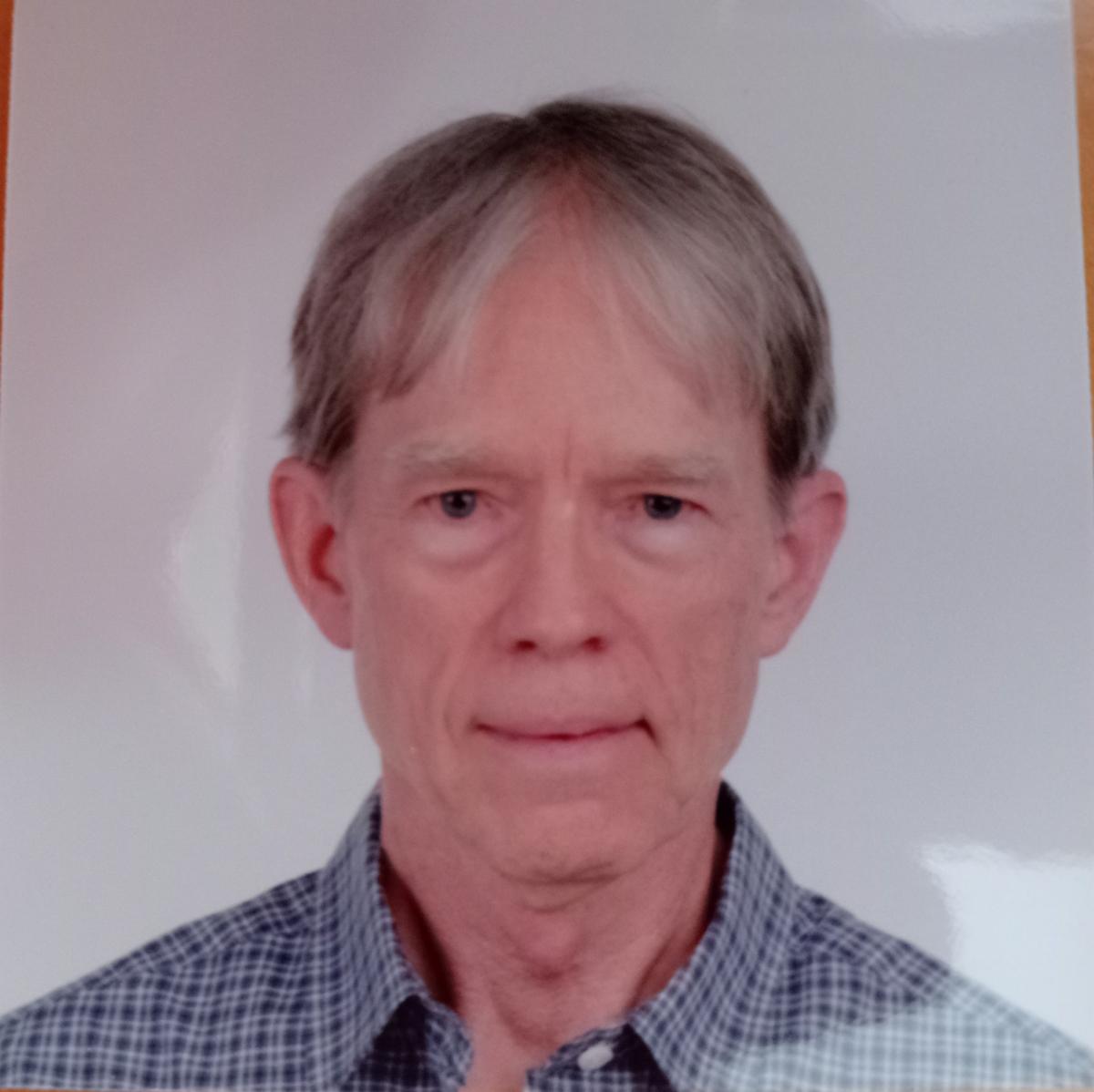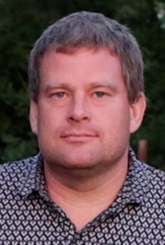Webinar: Agricultural Feedstocks for Gaseous Biofuels

About the webinar
Internationally, as countries work to replace declining supplies of natural gas with increasing volumes of biogas and biomethane, there is growing recognition that agricultural residues will be essential as a feedstock source.
Between the pre-1984 period and again from 2006 to 2014, the New Zealand Government funded extensive research into various agricultural crops suitable as bioenergy feedstocks. This research remains highly relevant today.
To ensure it remains freely accessible, the Bioenergy Association is republishing these research findings through the Bioenergy Knowledge Centre, making the reports freely available to all. Explore the collection here
Rocky Renquist, a Life Member of the Bioenergy Association, played a central role in much of the public bioenergy research from 2006 onward. In this webinar, Rocky will present an overview of that research, supported by Stephan Heubeck, who was also closely involved in the MPI-funded gaseous biofuels research between 2008 and 2014.
The Bioenergy Association’s Agricultural Feedstocks Working Group leads the research and promotion of agricultural feedstocks for bioenergy. Members with an interest in this area are encouraged to join the Group. Learn more here.
About the presenters

He has been a leading researcher in New Zealand on non-woody cropping systems for supplying bioenergy and biofuel facilities. The crops he has studied – both novel and well-established - can be grown sustainably without competing for prime arable land.
 Stephan Heubeck is an Environmental Engineer with over 20-years of experience in the design, installation, operation, optimisation and research of biogas and anaerobic digestion (AD) systems in Germany, New Zealand and Australia.
Stephan Heubeck is an Environmental Engineer with over 20-years of experience in the design, installation, operation, optimisation and research of biogas and anaerobic digestion (AD) systems in Germany, New Zealand and Australia.
His work spans a wide range of both high-tech and low-tech AD systems, using diverse substrates – from manures and agro-industrial by-products to dedicated energy crops – and covers all supporting auxiliary processes related to AD.
